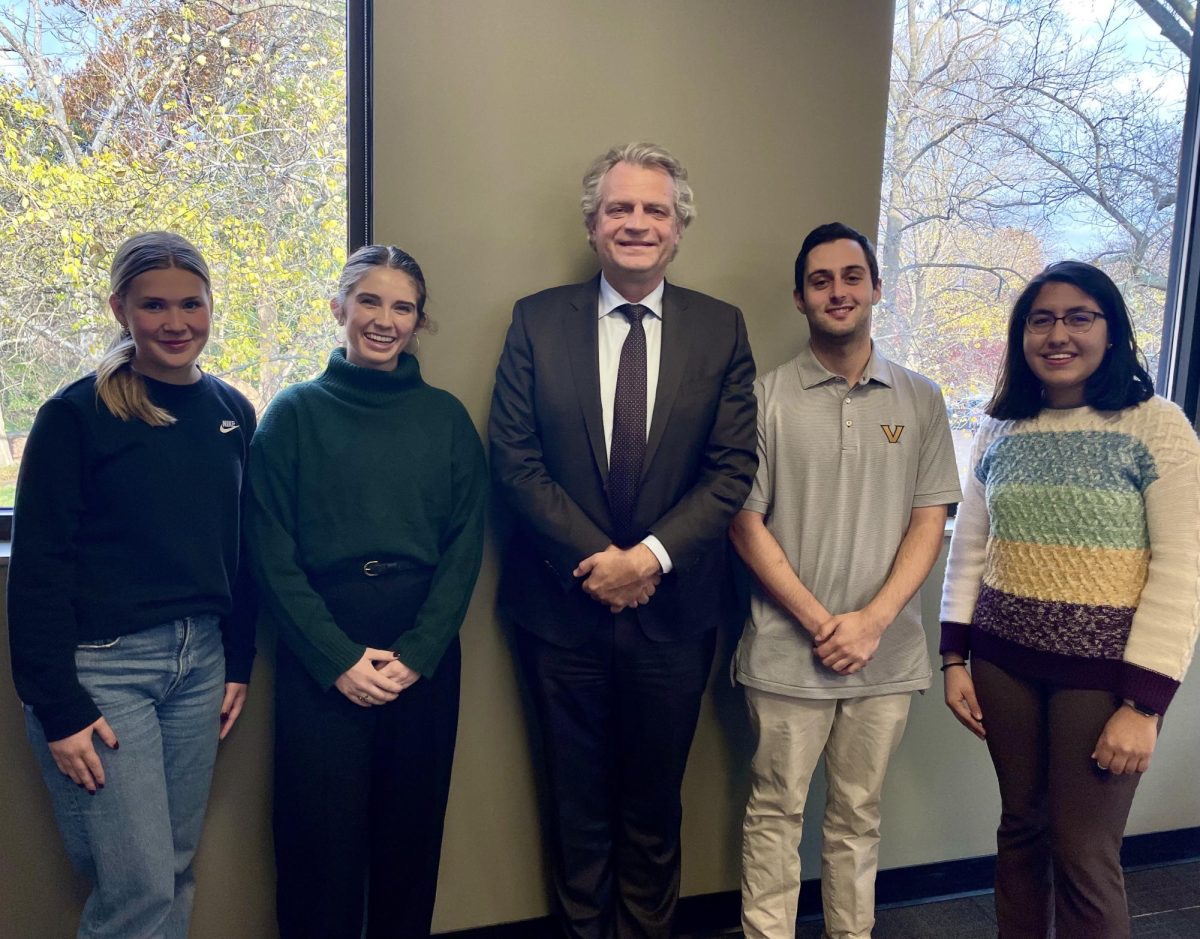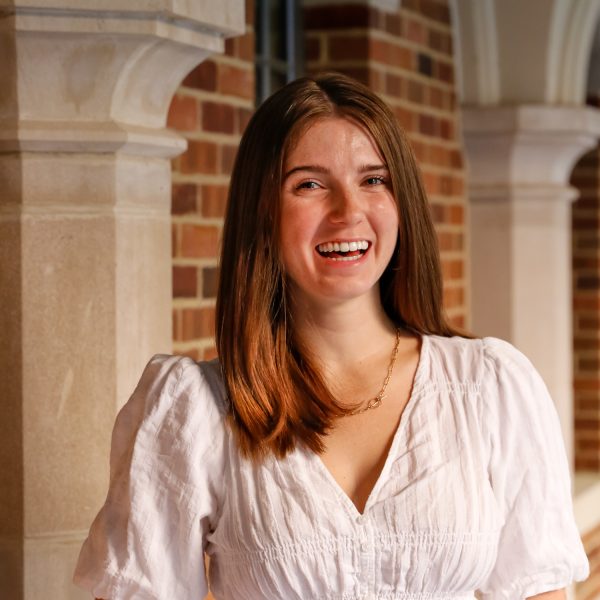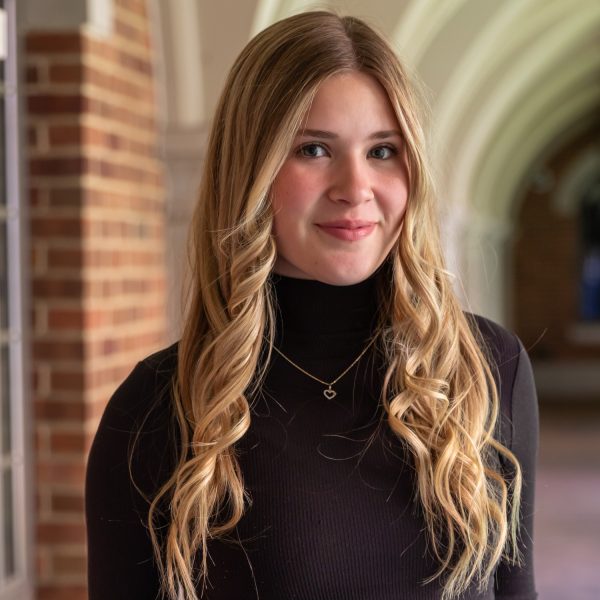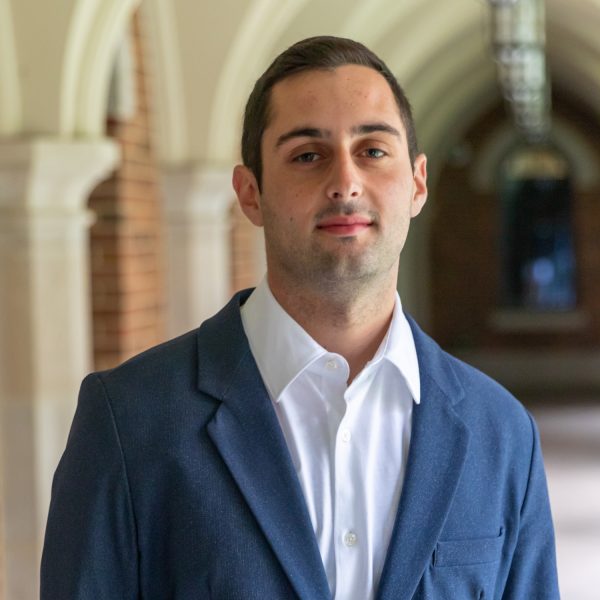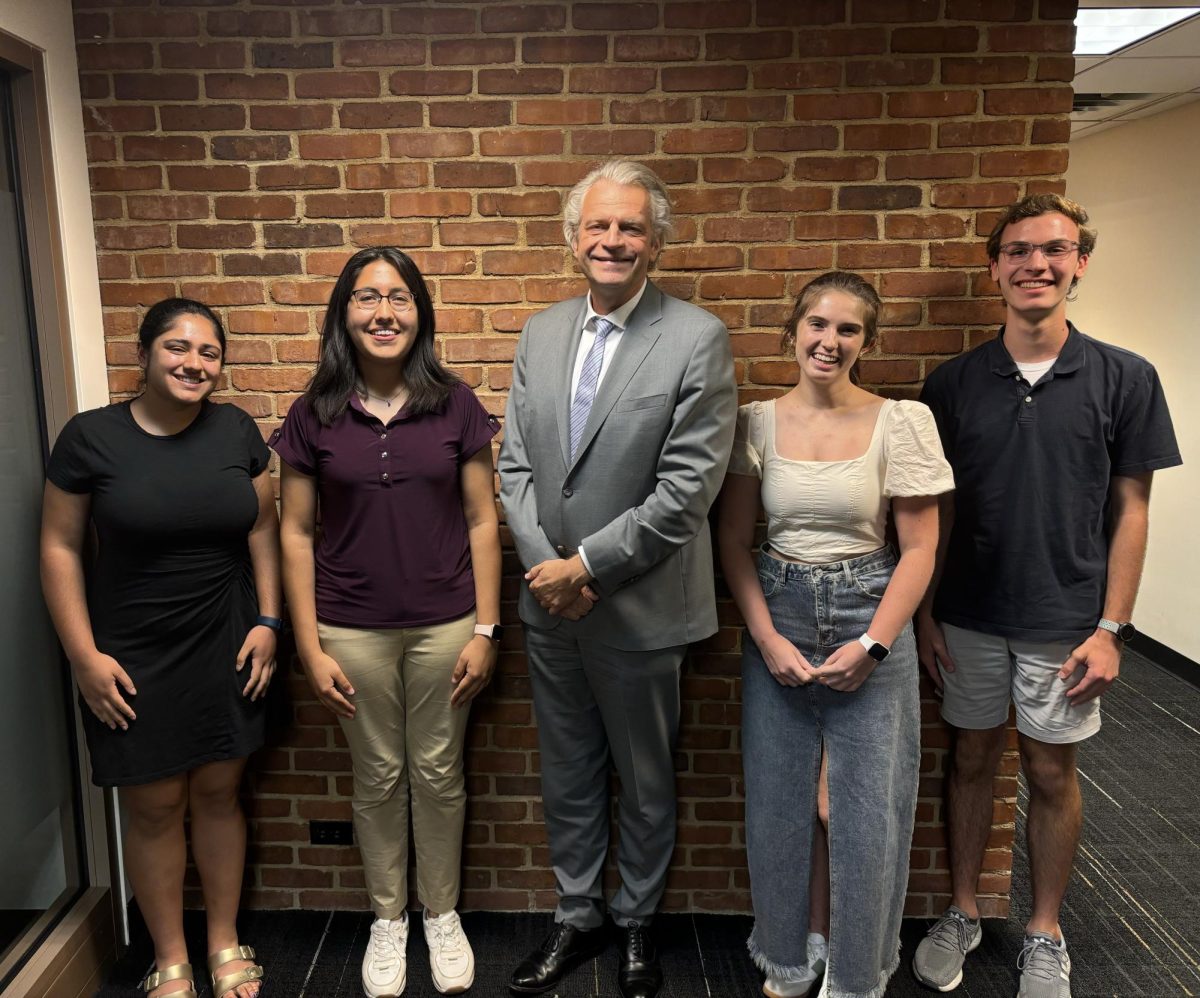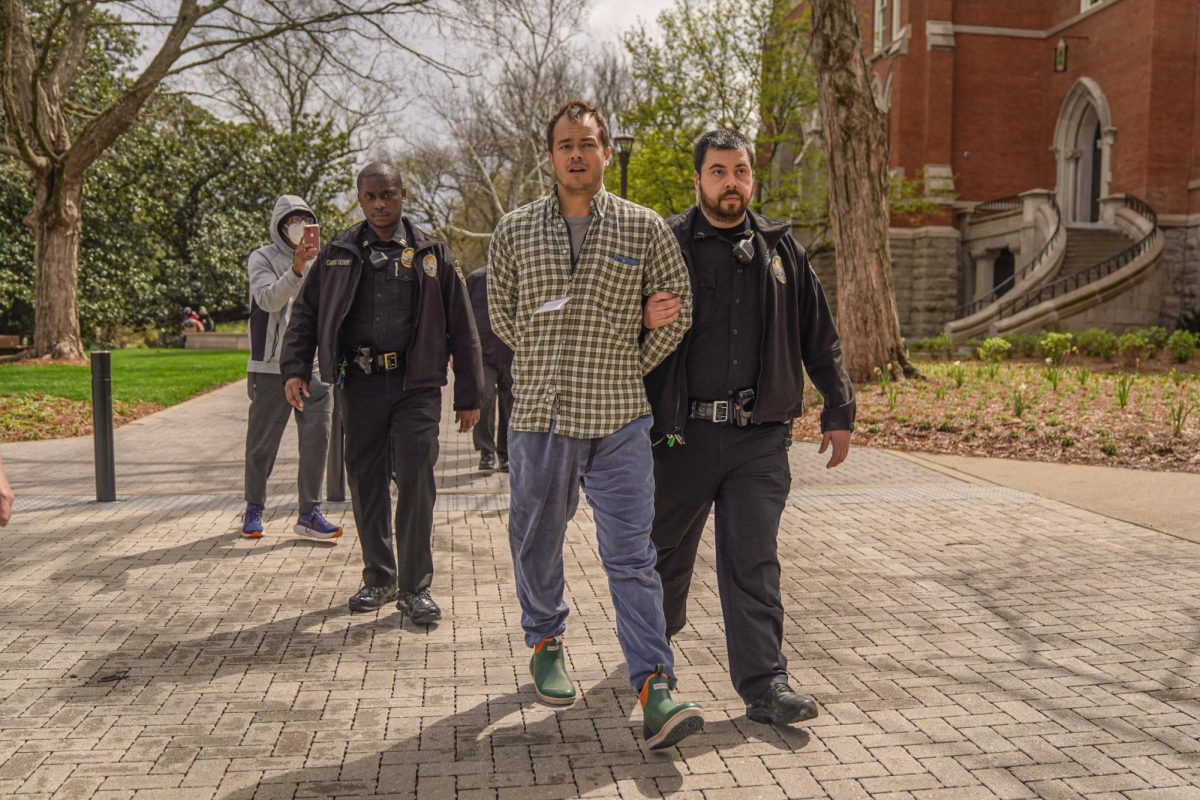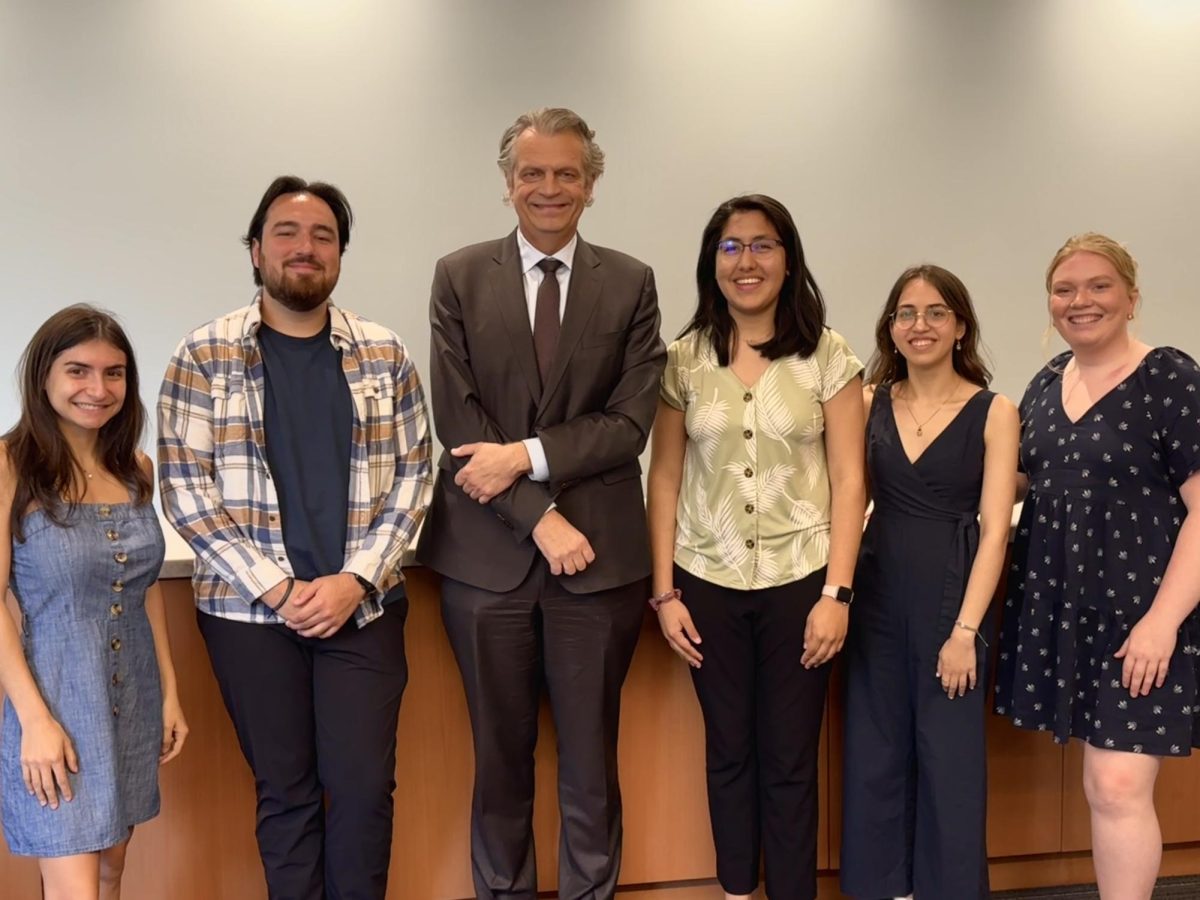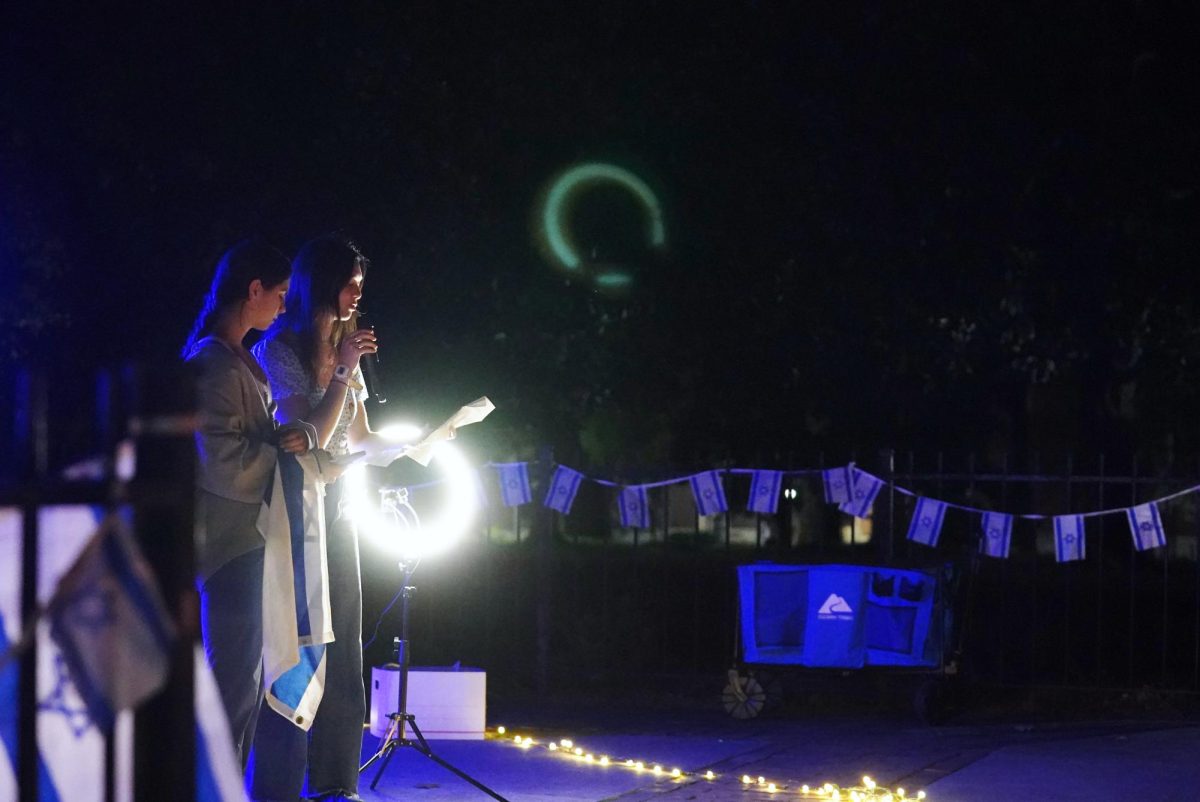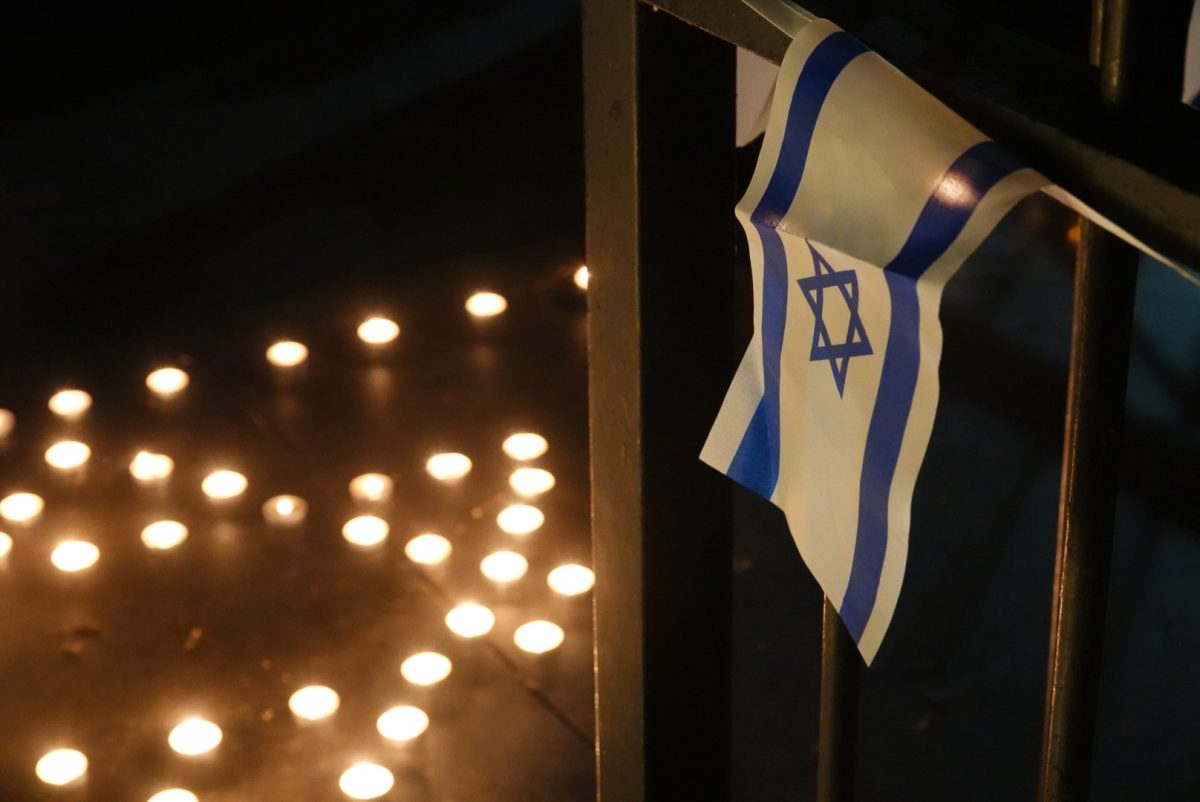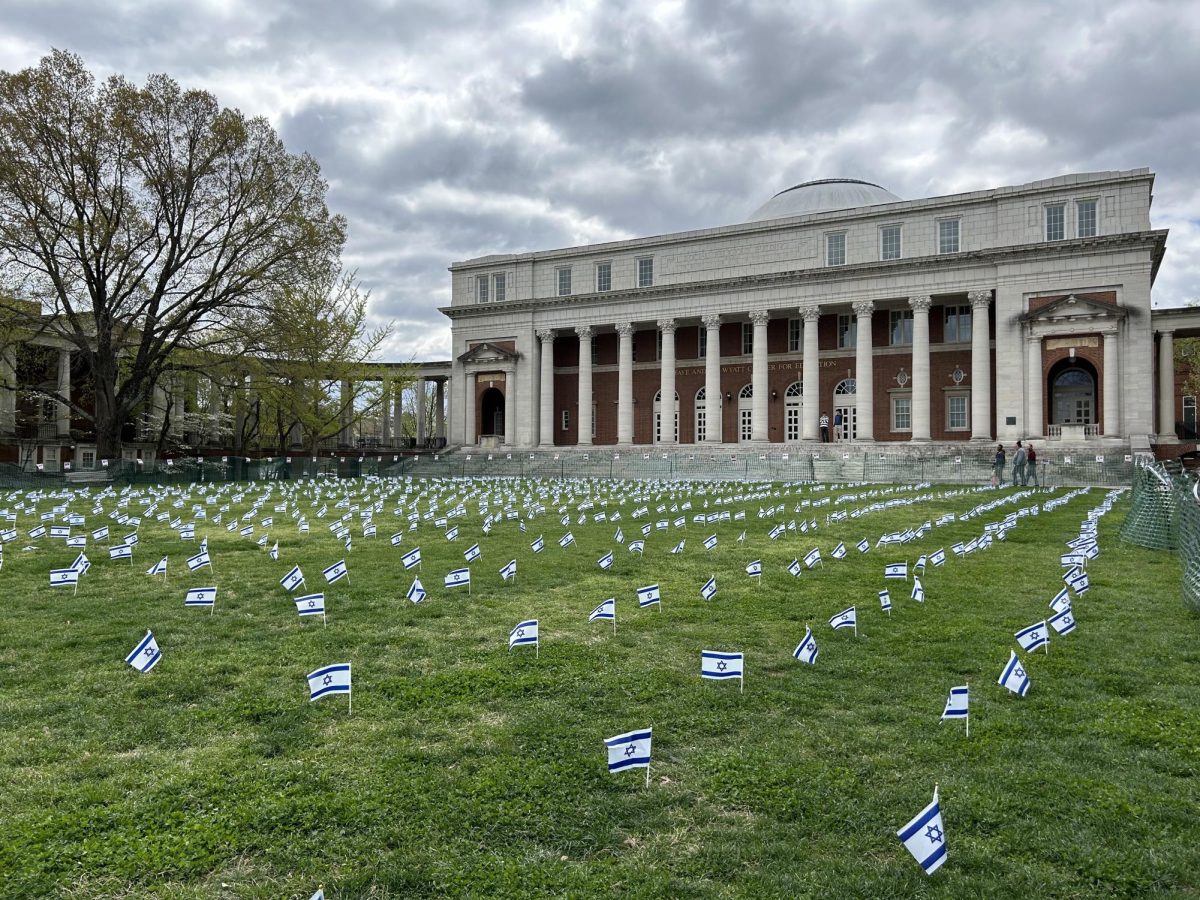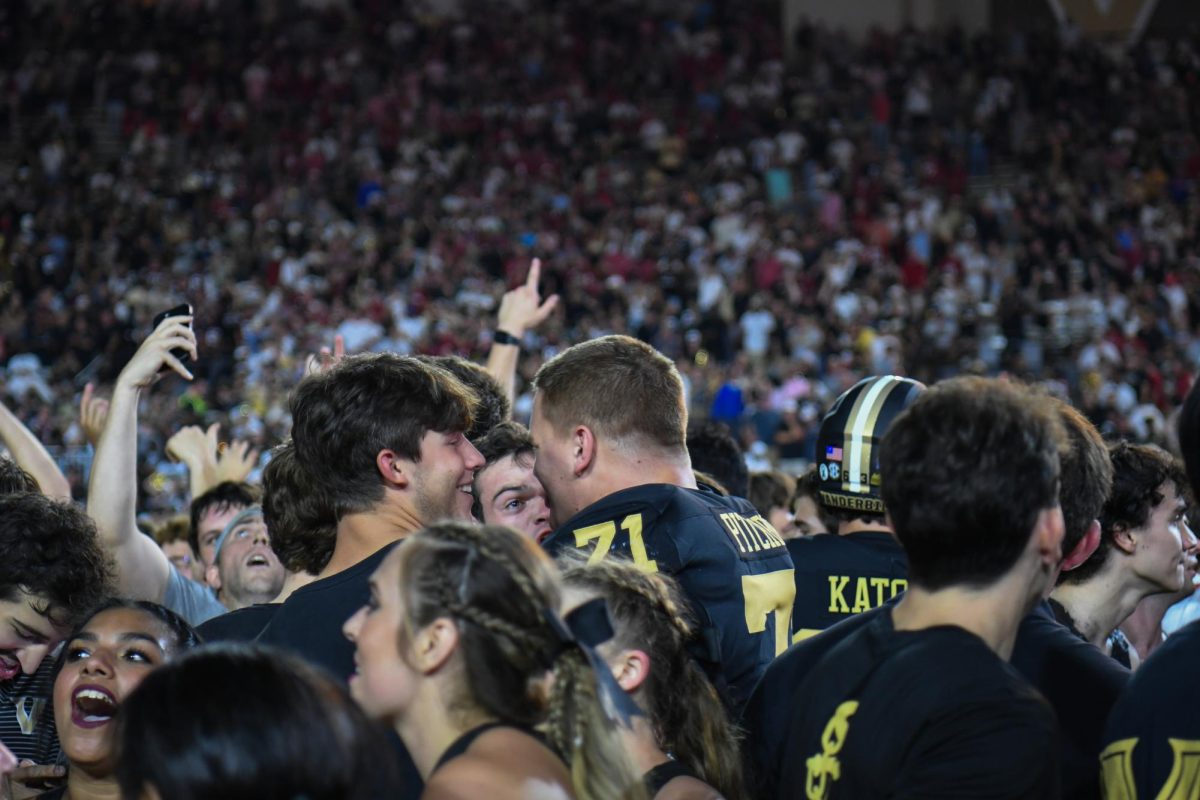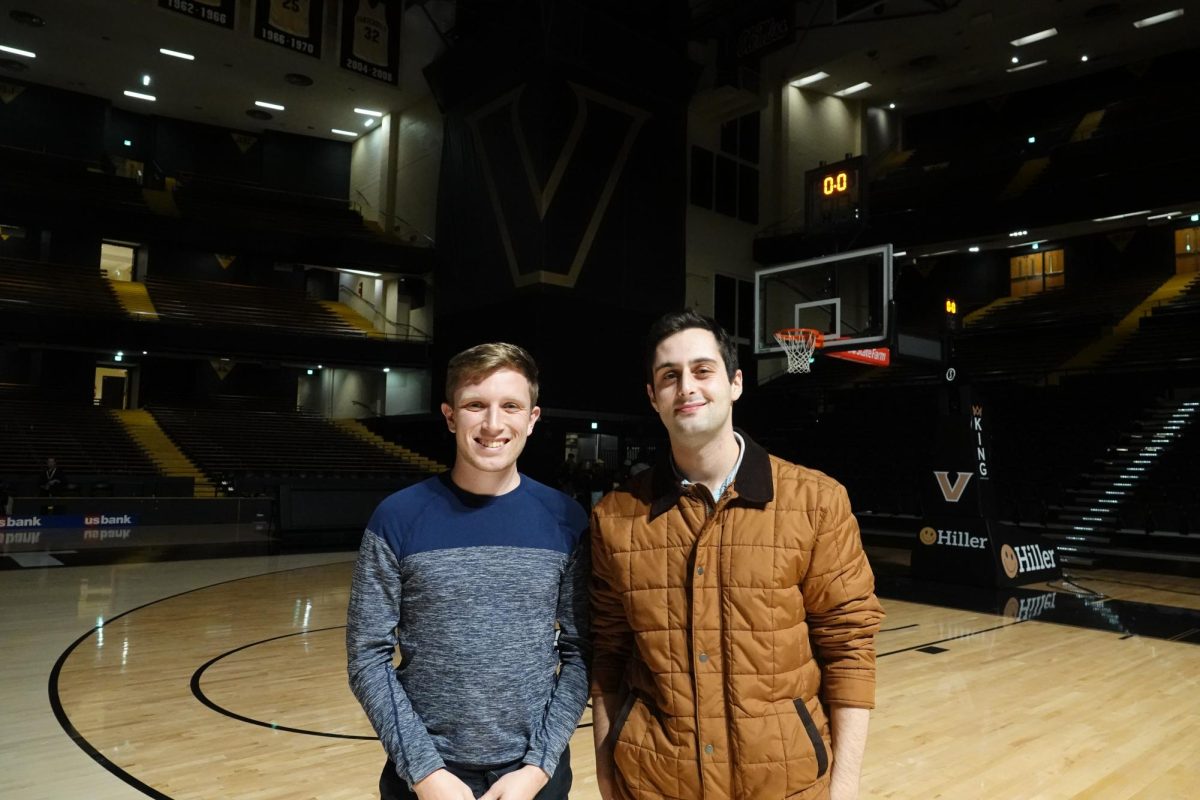The Hustler sat down with Chancellor Daniel Diermeier on Dec. 4 for our final debrief of the semester. In the wake of campus division regarding the Israel-Hamas war and Michael Knowles’ visit to campus, Diermeier spoke about the university’s commitment to civil discourse, student safety and principled neutrality.
Diermeier also delivered his thoughts on Vanderbilt Athletics and staff relations, as well as shared messages for students studying abroad. In the spirit of the holidays, he revealed his winter break plans and thoughts on the appropriate time to begin listening to Christmas music.
Free speech
The Hustler: How does the university distinguish between free speech and hate speech on campus?
Diermeier: Free speech is a core value because we think it’s instrumental to having a transformative education and path-breaking research. We have these three pillars: free speech and open forum; principled neutrality; and civil discourse. The broad guidance that we use for free speech is that it’s informed by the First Amendment. If things cross that line — for example, if there’s a case where individual members are harassed or they’re being discriminated against based on who they are — then we would have an EOA [Equal Opportunity and Access] investigation that can be initiated. We would determine whether that would be outside of the bounds or not.
What is the balance between promoting free speech and protecting student safety?
Student safety is very important to us. An example of where there could be a problem for student safety, for example, is threats toward individual students or the members of a particular student community. We would look into that. That would be something that would be decided in a proper investigation. We would take action accordingly if there was evidence that there was a threat to either individual student safety or groups of students.
Political commentator Michael Knowles visited campus last week, which elicited a mixed response from the community. Do you have any thoughts on this event?
Individual students and speakers they have invited on campus speak for themselves, not for the university. It is not us endorsing them in any way, shape or form; they speak for themselves. That’s the principled neutrality piece.
The second piece, and I think it is an important thing for students to really appreciate, is that Vanderbilt has a long, proud and distinguished history of student groups inviting controversial speakers to campus. It goes back at least to the mid-1960s when the Impact Symposia were held. Those were times when you had very controversial speakers such as Stokely Carmichael and Strom Thurmond, who was very much a segregationist. It was the students that organized it. I think we should be conscious of this proud history and foster that, rather than asking the university to step away from it. I think this is something that has always been distinctive and distinguishing for Vanderbilt and its student body. The students have had ownership over that and have great freedom of how to do that, and the university puts a lot of trust in them. I would be worried on behalf of the student body to say that we don’t want that anymore and want the university to step in. I think this is a hallmark of the history of student governments and leadership at Vanderbilt. I would encourage the students to own that and then figure out how we think that through in today’s environment, rather than asking the administration to step in at this point.
VSG leaders asked a question in their email we wanted to quote: “Chancellor Diermeier affirms that Vanderbilt “will continue to foster a supportive and inclusive environment,” but how can students feel included if guests are allowed to come to our community and state that they should be eradicated?”
We’re totally committed to that and to having an inclusive environment. Michael Knowles doesn’t speak for the university. Everybody should be clear about that. Questions of how we deal with and our commitment to inclusivity and belonging, how we make that practical in student programming and how we support our students — that’s a core function of the university. Other people who are not members of the university community, but come here as a guest have their own opinions. We’re not endorsing that opinion by any stretch of the imagination. The question you have to ask yourself is: Do we want to have voices like that? Do we want to have speakers on campus? And if so, who should decide who they are? I think there are three options. One, we have none. Two, we give broad freedom to students and faculty to invite whoever they want. Three, we have a university committee that checks whether you’re in or out. Those are the three options. I think the historical commitment and the practice at Vanderbilt was option two — we give students broad latitude. I would be very hesitant to deviate from that both on behalf of the university and particularly on behalf of the student body because that is a hallmark of the student experience at Vanderbilt. So rather than pushing the responsibility over, own it and make it your own.
Student safety and belonging
Regarding the conflict in the Middle East, how do you feel that student needs have changed since our last debrief, and how is the university addressing those needs?
This is a very difficult period for universities across the country. The conflict affects many members of our community personally in their family lives. We have tried throughout this process to support them as much as we possibly can. Our commitment to creating an environment where our students are supported in difficult times has never changed. That’s our commitment to our university community: to support our students, to support our faculty, to support our staff.
I think our students have done a remarkable job of abiding by our principles and our culture, not perfectly, not all the time, but if I look at this in comparison to what’s happening in other universities, I look at this with a lot of pride in our community and in particular the students. It is very emotional for people, and it is very personal for people. Not for everybody, but for those members of our student body who feel strongly about it, it is a big deal. Our job is to support our students on that. There are going to be certain types of behavior, like threats or harassment, that we will not tolerate. But we also want to encourage our students to be able to have constructive, real and difficult conversations on this topic because it is front of mind for so many of you. We can do that by helping you organize events, by supporting you on that, by facilitating them and then, when students need individual support, we can provide that.
There have been a few adjacent protests and exhibits regarding the campus in the past few weeks. What do you think of those, and do you have any advice for or would you like to say anything to the organizers of those different events?
Following the theme of institutional neutrality, those are students expressing their opinions. As long as those displays or opinions are not harassing, threatening or violating the boundaries that we discussed earlier, that is an expression of their opinion that we’re perfectly fine with. We may not agree with the content, but in terms of whether the students have the right to express their opinion: absolutely. That’s part of what it means to have an open forum.
Disrupting university operations, classrooms or not following the rules of how these things are set up and how to reserve classrooms or space is a different conversation. That applies to everybody. We want to make sure that our students stay within those boundaries. If the content goes over to a space where there is harassment or threats or anything like that, we have an issue, but as long as it’s within those boundaries, these types of opinions can be expressed by students.
Crime has surged on campus, including multiple carjackings and a trespasser into an academic building, all amid a promise to strengthen campus security. What is your response to student concerns regarding campus safety, and how is the university addressing the need for increased security?
Campus security is a top priority for us. Whenever we have an incident, we respond. We have elevated the presence of police officers on campus. Something we’re constantly trying to improve is campus security, and it’s natural that when you have a report, you see how you can address this particular criminal activity better than you have in the past. Chief August Washington is constantly working on that. We want to make sure that, when new threats emerge, we’re able to deal with them effectively.
Athletics
The football team had just two wins this season, five wins a season before and, in head coach Clark Lee’s first year, two wins again. There’s been a lot of action the past week in the transfer portal, especially with quarterbacks Walter Taylor, Ken Seals and AJ Swann entering the transfer portal. As Lea looks to get Vanderbilt back on track and in the win column, what does Vanderbilt Football have to offer to recruits and players in the transfer portal and also out of high school?
This was not a good season. I think everybody knows that. I think we were very encouraged by the progress last season, but this is not where we want to be. Coach Lea knows that. I think they’re working on that, and they’re working hard to address and make the relevant changes.
One important question is, how do we think about the transfer portal effectively in this context? The principle always has to be that when you’re recruiting, or when you’re trying to bring somebody entering the transfer portal, this needs to be a student who wants to be at Vanderbilt and for whom Vanderbilt is the right fit. If you are an athlete who can play at an SEC level and you have the academic ability to be successful at Vanderbilt, there is no better place for you to play. If you’re not coming to Vanderbilt and you go somewhere else where maybe the academics are worse, you’re making a mistake.
That means for us, from a recruiting point of view, these students are going to be a small segment of the students overall who want to play. You need to be able to identify those students and to have relationships with the schools that allow us to identify them. And then for these 200 students, we need to make sure that they come here.
Then, there are all the other things you have to do per match, right? Facilities have to be at a level where students are put in an environment where they can succeed. Now we’re living in a world of NIL, so that needs to be taken care of. You want to make sure that the student-athletes would benefit from an education at Vanderbilt. You want to identify and convince them that they should come here, not anywhere else.
Can you speak about Vandy United and how you think the $300 million allocation to the initiative will help bring in the best athletic talent and propel Vanderbilt athletically?
From a facilities point of view, we were not competitive. That was true for our student-athletes and from the fan experience, and we found that Vandy United allowed us to address both. We were not putting our athletes in an environment where they could succeed. That’s not any different than if you’re hiring a promising biochemist and then you give them a subpar lab. You have to have the facilities so that the people that have made that their passion can succeed, and they have the necessary environment. We didn’t have that.
Now we’re building it. So I’m very optimistic about that. That will make a huge difference in terms of recruiting. Right now, it’s so tricky because if you’re thinking about coming to Vanderbilt, you’re looking at the cranes, and you have to imagine what that is like. I think for a student that is excited about the building, who has a pioneering spirit and wants to be the first rather than the 150th, that’s an exciting place.
What I think was critical is that people know that we are committed as a university. Three years ago, there were lots of doubts about that. I don’t think there are doubts anymore. I don’t think there can be any rational doubts anymore that we’re committed because we did everything we said we would do at the time when we said we would do them.
Can you speak about what you’ve seen from Candice Storey Lee since you hired her? It’s been a few years now, but how she helped gear the Vandy United campaign.
What was very important about Candice serving as our athletic director was I wanted to have somebody who could be an excellent athletic director, but who really embodied the Vanderbilt values and bled Black and Gold. Her being a Triple ‘Dore was instrumental in that. Not only that, but she gets what Vanderbilt and what being a Vanderbilt student-athlete is all about.
I think athletic departments get into trouble when they drift off from the university. So, we have a very, very close collaborative relationship. It needs to be at a level of excellence, like the academic entities that we have. We’re expecting coherence, consonance with university values and a level of accomplishment and excellence commensurate with the rest of the university.
Candice has really been the leader of the Vandy United campaign, and it has been a huge success. We’re already past a fundraising goal, and we keep going. I think the strength that we’ve had in a whole variety of other sports is great. The VandyBoys made the finals once in the last few years, they won the SEC, as I said before golf is thriving, but we’ve got to do better on football and men’s basketball. That’s critical. We have a very promising volleyball program. It’s a little hard to understand that this is going to be a multi-year process and that there’s going to be backsliding. The critical thing to me is that we have leaders in place, and they’re not complacent and set high aspirations. When things are not working, they take action. That’s what we’re looking for, and this is something we do everywhere.
Staff support
The university has been remodeling its equity, diversity and inclusion efforts over the past several months. With the identity centers now housed under Student Affairs and a decentralized model being implemented across the university, how do you feel the structure will better address student needs, and how is this initiative being paralleled within the Office of the Chancellor?
When we looked at what we wanted to do in the EDI space a year ago, we felt pretty good about the support for students and faculty. The problem was on the staff side. Our concern was that the existing structure didn’t really address the needs that we had on the staff side — student-facing staff, research staff and operational staff — people that make sure that the university is running.
The second consideration was that the whole ethos, the Vanderbilt Way, the goal that every member of our community can realize their full potential — really needed to be implemented and fostered among the staff just as much as among the faculty and the students. That is often where universities fall short. We decided to move things around and create a new vice chancellor for people, culture and belonging and blend the EDI staff-related issues with that role so that the people who have responsibility for everything “people” also have responsibility for belonging. That was largely motivated by our concern that we had a split structure before — we had an EDI office that again was largely focused on students and faculty, and we had a human resource function, which was in the Vice Chancellor of Administration.
We just think that the students and faculty concerning EDI are best handled under the Provost Office, so that’s where they live now. We added some additional resources for EDI among students and faculty, but now it really mirrors how we think about all people and talent-related matters.
Some community members have expressed concerns about the disparity between how staff and faculty are appreciated and recognized for their contributions to the university, specifically in regard to the recent staff member who passed away, Olivia Parrish. Can you speak to that incident and the university’s policy on recognizing faculty and staff, particularly in cases of death?
I think we’re doing a very good job of recognizing our staff members. This was not true even four or five years ago. We instituted a lot of changes to that. Five years ago, there were no staff recognitions at all. We moved toward a staff assembly which we have every fall and every spring where we have awards for staff members and teams. That’s a big deal for the staff. It’s very, very well-attended. That’s an opportunity for us to thank the staff overall but also recognize individual members of the staff. I think we’re doing a good job on the recognition side. I don’t think the recognition is the issue — obviously, we can do more, and there may be issues where we should have done this or that, but that’s working.
Where we need to do more is really to be very intentional about staff development. We have some initial working groups on that. The goal there is really on talent development so that we’re becoming a destination for the most promising staff and then we put them in an environment where they can realize their full potential. Both of these things need work: How do we identify the talent that would be uniquely suited for Vanderbilt, and then how do we put them in an environment where they can thrive? Doing better on hiring, attracting the best talent and then developing them is where we need to do the most work.
The University recently announced a new vice provost for global engagement, and the Keegan Traveling Fellowships expanded into a summer program. Do you have any advice for students going abroad, and what do you think are some of the most valuable lessons a student can gain from that experience?
My first advice is: Do it. Go abroad. It’s very important that our students develop a global perspective. You can get a lot of that by learning about it, by reading about it and by having classmates that come from across the world. Our students should take full advantage of that, but living abroad and experiencing what it’s like to be in a different country is hugely valuable. When you do that, it is really important that you make connections and friends with students or anybody else living in that environment. The students should not just stay with themselves. There’s a bit of an adventurous spirit to venture out beyond what is familiar to us and to have an open mind. Studying abroad is really powerful because you’ll see similarities that we have in common as humans, but there are also differences. Appreciate our commonality, but also appreciate our differences and delight in those. That’s very, very powerful to include as part of the college experience.
Editor’s mix
When do you think is the appropriate time to start listening to Christmas music?
It can’t be before Thanksgiving. I’m violating institutional neutrality. It has to be after Thanksgiving. Pumpkins have to be cleared. Okay, so the question is, can it be Black Friday? I would wait until Monday. The weekend is still Thanksgiving. It can still be November so long as it is after Thanksgiving Sunday of the weekend.
Advent — that’s a good time to start. Somewhere between Thanksgiving and the First Advent Sunday seems correct. I’m committing: the First Advent Sunday. It’s settled.
Which campus dorm would you want to live in and why?
Obviously, Rothschild, because it’s the newest. I would always want to be in the newest one. It is the new thing. Next year it changes again, but right now, I’d want to be in Rothschild.
Can you talk about your fondest memory as a sports fan? Is there one moment from when you were a kid or now that is very special?
I’ll give you two. One of my fondest moments was the World Cup Final in 1974. Germany was playing the Netherlands in Germany. I remember all of the players, and I remember when the goals were scored, who did it, what the context was, inside out, 40 years later. Yes, it’s true. I watched the final in 2014 with my boys, and Germany beat Argentina. It was a wonderful cross-generational moment, but the fondest one I’ve had as an adult was also in 2014 when Germany beat Brazil, 7-1. That was, I think the half-hour, where six goals were scored. I think I’ve watched it so often that I know the commentary by heart.
What are you looking forward to over winter break? Do you watch the ball drop?
I usually visit my parents over winter break, and that’s my plan this year as well. They’re elderly, my dad is 85 and my mom is 82. I usually do that over the holidays, so I don’t think the ball drop is in the future there. My focus has to be on family.

